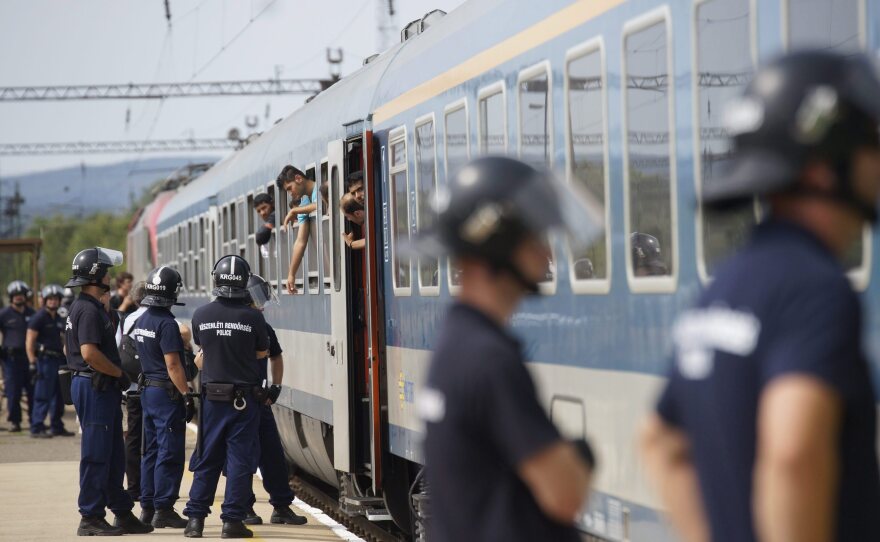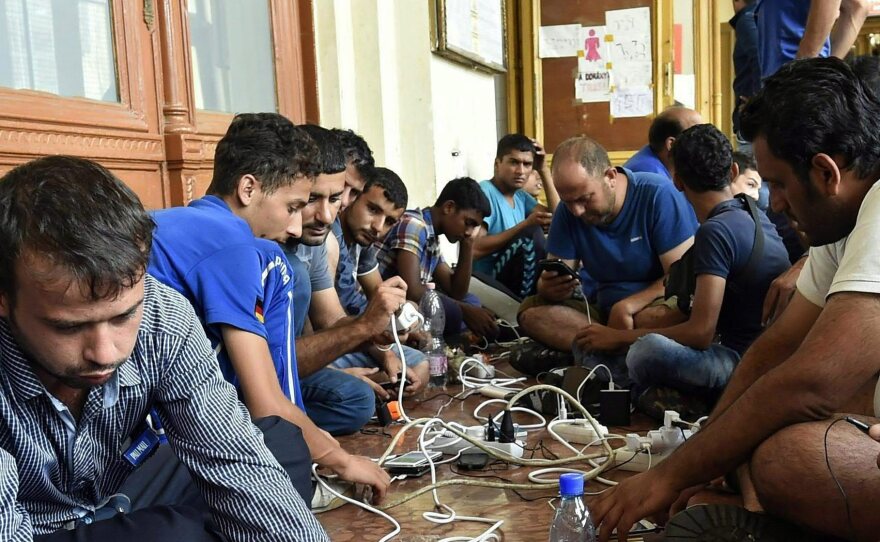

Hungary's prime minister says his country is doing all it can to manage a growing migrant crisis that has flooded it with refugees, as European officials said they will meet later this month in Brussels to discuss an effort to "strengthen the European response" to the situation.
Viktor Orban said the influx of refugees into his country is really "a German problem" because that is the intended destination of most of them. Hungarians, along with other Europeans are "full of fear" he says, because "they see that the European leaders, among them the prime ministers, are not able to control the situation."
The BBC reports:
"His comments came as Hungarian authorities opened the main rail station in Budapest to hundreds of migrants after a two-day stand-off."One train left, but then stopped near a migrant reception centre. "Migrants mostly from Syria but also from Iraq, Pakistan and Afghanistan resisted efforts by police to get them off the train at Bicske, about 40km (25 miles) west of Budapest. Some were banging on the windows and shouting 'Germany, Germany.'"
Eleanor Beardsley, reporting for NPR, says: "It seems that there's going to be a showdown here. There are helicopters above and lots of police here. They've shut down the front of the station, they are blocking the stairwells and they are out on the tracks. I am sort of standing in a group of about 20 of them, looking at the train, as if they are contemplating what's the next step. You feel that something is going to happen."
The New York Times adds:
"The next move for the migrants remaining in Budapest was unclear, however, because Hungary's railroad operator said that no direct trains were heading to Western Europe from Keleti, the city's main rail station. "When one intercity train with about 500 migrants was stopped in Bicske, about a half-hour west of Budapest, all Hungarians were told that they could get off, but non-Hungarians remained locked inside the train without drinking water. Riot police officers fended off migrants hanging out of windows and chanting that they wanted to go to Austria and Germany. "'Nobody gets off! Nobody gets off!' the police shouted."
Meanwhile, Voice of America reports that British, French and German officials have called for urgent action and plan to hold talks on Sept. 14 in Brussels to address the crisis.
VOA reports: "The three ministers also called for better processing ofmigrants in Italy and Greece."
As we've reported, the United Nations believes that more than 300,000 migrants have set out from North Africa and the Middle East on the Mediterranean Sea for Europe so far this year, a 40 percent on all of last year.
As NPR's Middle East editor Larry Kaplow writes: "On any given day now, hundreds of people, perhaps thousands, are drifting in ships or clinging to boats that are little more than inflatable rafts. They go in other ways, too. Jumping fences in Morocco to get to Spanish territory. Cramming into trucks from Turkey. Riding trains across Europe.
Copyright 2015 NPR. To see more, visit http://www.npr.org/.






